Children are wonderfully honest about what they’re feeling and thinking, and how they view the world around them. When they feel safe with us, they tend to lead from the heart, without filters. That can inspire some eye-opening and entertaining conversations! What happens, though, when our child openly makes observations or asks questions about another person’s physical appearance or behavior? Or when they become fixed on an unsettling or argumentative opinion? Janet responds to 3 emails from parents who are (to varying degrees) uncomfortable with what their kids are saying and wonder if they should do more to correct and discourage them.
Transcript of “What To Do About Embarrassing, Troubling, or Crazy-Making Things Our Kids Say”
Hi, this is Janet Lansbury. Welcome to Unruffled.
Today I have, as I often do, three questions I received from parents, and I see a running theme here. Maybe nobody else will, but hopefully by the end of this podcast episode you’ll see it. And hopefully my responses to these notes are helpful to you. All three of these notes refer to a child expressing thoughts or opinions, a point of view that is uncomfortable for the parent to hear. In the first case, it’s because the child’s thoughts are embarrassing the parent in front of other people. In the second case, they bring up a concern about their child and the child’s perceptions about themselves. And in the third, the child is sticking to a point of view that seems silly to the parent and it’s really annoying that they won’t let go of it. I’m looking forward to getting into this.
Let’s start with the first note. This one says:
Hi Janet,
My three-and-a-half-year-old son is bright, articulate, and outgoing, and I love spending time with him. But one issue has been giving me anxiety about taking him out and about. He comments on people’s appearances, often right in front of them, sometimes accompanied by pointing. He asks, Why does her hair look like that? Why is his face red? Is that a man or a woman? And so on and so forth. If I don’t respond immediately, he repeats the question until I answer. I usually try to guide my son away and say something like, We’re all different. Look, you and I have different [fill-in-the-blank]. I also say that talking about how other people look can hurt their feelings, but if he has questions he can ask me or his dad at home.
He usually says okay and stops in the moment, but it’s continued happening. I understand this is developmentally normal and maybe I should get over my own embarrassment, but I’d be grateful for any advice. How do I teach him to save such questions for later? And what do I do in the moment when the people he’s talking about, both adults and kids, clearly heard him, and acknowledge that his words may have been hurtful? I want to model good behavior and show respect to the other person without shaming my son.
Thanks so much and I look forward to your thoughts.
Okay, so this is a not-fun situation. I’ve been in this situation. I really only remember it with my oldest, but I don’t know, it may have happened with the younger ones too. Obviously this is awkward, embarrassing. We don’t want other people to feel judged or hurt, of course, by us or by the things our child says. But the truth is, once our child says it—especially at this age, he’s three-and-a-half, he’s just a little guy. He doesn’t have a ton of impulse control yet. And he’s saying what’s on his mind.
And I think we have to remember two things. First of all, this parent is absolutely right and it’s great that she understands. She says, “this is developmentally normal and maybe I should get over my own embarrassment.” Yes, it’s developmentally normal and natural for an inquisitive child who’s curious and wants to learn everything about their world, right? But once they’ve said it, they’ve said it. This parent says, “If I don’t respond immediately, he repeats the question.” So when we’re not responding immediately, it might be that we’re kind of hoping he just stops and we don’t have to deal with it, or maybe we just don’t know what to say. And then our child is picking up on that discomfort from us. It’s natural, it’s normal to have that in that situation, right? It’s totally embarrassing. But it kind of throws our child a little off-balance and actually makes it more likely that they’re going to fall into making those kinds of statements again.
So, if we realize what’s done is done, he’s already said it, we can’t take it back and there’s really nothing I can do to erase that for the other person who’s heard it. Maybe we can exhale on that and know that where we do have power is to respond in a way that takes the onus off of this. And by doing so, make it less likely that he will repeat this.
I would also do, as this parent says, but I would do this a moment later and very comfortably, I would say, Hmm, you know what? Sometimes when people hear that it can hurt their feelings. So I would say it just as a, By the way, here’s some good info for you to know in your journey, my love. People can take this the wrong way. But if we’re not uncomfortable about it and we communicate that way, without judgment or alarm, then we prevent this from happening again or make it less likely.
And in the moment, let’s take the examples she gave. “Why does her hair look like that?” I would right away say something like, Hmm, I don’t know. Maybe that’s a style that she enjoys, I guess. Almost shrugging our shoulders as we say this, being that comfortable. “Why is his face red?” Hmm, I don’t know. Maybe he’s had a lot of sun? Not sure. “Is that a man or a woman?” I don’t really know. Could be either, maybe. Or, I believe that’s a man, but one never knows how somebody might identify their gender.
That very nonchalant response will help. It’s just like with everything with children: when we’re not making a big deal out of it, it’s not a magnet for them that they need to keep going there, they need to keep checking that out and exploring that with us.
So if this parent does normal things like not respond immediately, because she’s like, Oh gosh, let’s just pretend that didn’t happen. I don’t want to answer, that doesn’t work, because then he repeats the question as if to ask, What’s going on with you? Like, Why can’t you just answer a simple question, parent? Just give an answer. Doesn’t have to be a perfect answer. That’s going to be our best response.
When she says, “I usually try to guide my son away and say something like, We’re all different. Look, you and I have different” whatever, it probably comes off to him a little bit defensive and, Hey, don’t ask those kind of things, instead of just answering it like it’s no big deal.
And then she says, “I also say that talking about how other people look can hurt their feelings, but if he has questions he can ask me or his dad at home.” So yes, I would absolutely do that, but not from an activated place, not from an uncomfortable place if possible. If I do have those feelings, just waiting for a moment to add that part in. Maybe even saving it for later, like, Oh, by the way, just so you know, this can do that. But you’re saying it to somebody who’s on your team, who is doing normal things, and you just want to give them some information, give them some knowledge around socializing with other people.
She says, “How do I teach him to save such questions for later?” Just by doing that, giving him that little tip. Because children want to be socially correct, they don’t want to embarrass people.
But if they’re embarrassing us, then that is something that they get drawn to trying to understand. And when they’re drawn to doing that, that means they’re repeating it, usually. That’s true with all different kinds of behaviors. The way we react to things matters. We can react in a way that shows that we’re confident leaders or we can be thrown off balance. And we’re all going to have both of these, but the more that we can err on the side of taking it in stride, the easier it’s going to be for us.
So she says, “I want to model good behavior and show respect to the other person without shaming my son.” And I think that is exactly how you can do that: just by answering. They already heard him say it. So just give an answer that is neutral, genuine, that’s not judgmental on your part. That’s how to model our best behavior and show respect. And again, what all these notes have in common is this natural response that we have as parents to kind of push back on it, meaning the thought or the point of view our child expresses. Avoid it. Correct. Rather than just allowing it and welcoming it. Letting it be, letting it have a life, rather than correcting it, avoiding it, pushing back on it.
Okay, so here’s another one:
My three-year-old daughter is obsessed with being pretty or beautiful. I’m sure I have contributed to this. I catch myself telling both of my kids —three-year-old girl and five-year-old boy— how cute they are, not infrequently. They are adorable. But I think I balance this decently with observations about how hard they work, their creativity, thoughtfulness, etc. And while I like to look nice sometimes, I’m usually in sweatpants and I rarely wear makeup, so I don’t think it’s all coming from me. I think the limited television they watch and other media they consume have relatively healthy messaging.
Still, my daughter wakes up every day and says she wants to be pretty, which invariably means she wants to wear a pink sparkly dress or similar. If I tell her she is pretty, no matter what she wears, she flatly denies it. Lately I’ve been asking her, “What makes you feel pretty today?” Trying to bring it to the internal, but I don’t know that it’s registering.
I don’t really mind pink and sparkly if that’s how she wants to express herself. (Although there are lots of fun pants and t-shirts that aren’t getting much or any use!) But other things she said have me a little worried. Once she saw me putting on makeup and, when I wouldn’t let her wear mascara, she started crying because she thought people were going to say her eyes weren’t pretty. When we play with her mermaid toys in the bathtub, she wants one to be the beautiful girl and another to be yucky or not beautiful.
Is this normal? I kind of love that she knows what she likes and loves to dress up, but I also of course really don’t want her to grow up believing her value is in her looks. My family was very focused on looks and that didn’t do me any favors in the confidence department. I’m not sure how to walk this line and would love some advice on how to raise a confident little fashionista. Thanks very much.
Okay, so this type of question I receive often. Children exploring these whole realms of life, like being the “pretty,” princessy, glittery, ultra-feminine person. And I think they do see it in media and also it’s maybe just an exploration of a side of themselves. Boys can experience it too. So I would try to see this as an exploration. I don’t know that she’s going to be a fashionista, maybe just a phase that she’s passing through. And a positive goal we can have as parents is to encourage it to pass through. Just like we would, in a way, encourage that boy in the first example to share what he’s thinking and feeling, while also letting him know comfortably that his words can have an effect on others.
With the dressing up, the more that our child feels us pushing back on this, the more likely they are to get stuck in these phases. Again, to explore the power that they have with us when they’re experimenting or exploring certain behaviors. And we don’t need to know how this girl got these ideas that something’s yucky and something’s beautiful and that that’s an important thing to be and that maybe her eyes wouldn’t be beautiful without the mascara. I mean, maybe she asked her parent once, Why do you wear mascara? And the mom said, Oh because it makes my eyes look prettier. That would be a typical thing to say, right? But again, it doesn’t really matter where they heard it. The point is she’s doing what she’s supposed to do, which is exploring, processing all the things that she’s taken in or heard once or become interested in. She’s learning about it.
And when children learn about it, they go all in a lot of the time, which I kind of love about them. So when this girl wakes up every day and says she wants to be pretty, we don’t need to push back on that.
This parent says, “If I tell her she’s pretty no matter what she wears, she flatly denies it.” Right, so we’re gently, lovingly wanting to counter our child. Oh, but hey, you’re always pretty. And they want to be whatever they think “pretty” means to them, which maybe is a sparkly dress or mascara or the mermaid in the bathtub and not the other one. It’s a concept that she has that’s not necessarily what other people’s definition of pretty would be. It’s her definition, because she’s the one learning about it, exploring it.
So this approach, it’s so much easier than feeling responsible for molding and shaping and pushing back on and correcting the things our child does and says. That takes a lot of energy and it doesn’t help. It can be a really frustrating experience as parents when we’re working to do what we believe is our job, and it’s actually making our job harder.
And this is where trust comes into play. Trust is relieving ourselves of that burden of trying to fix what’s in our child’s mind, what’s on their learning agenda for right now. That’s not our job and it will likely exhaust us if we try to make it our job.
So this parent is doing a lot of work. She’s been asking her, “What makes you feel pretty today?” Trying to bring it to the internal. She says, “But I don’t know that it’s registering.” Yeah, we don’t have to teach lessons. The lessons get taught through our child’s experience and the trust that we have in them that they will pass through it. The real lesson we want to teach her is, We welcome you to explore and learn and try out everything that interests you in life. Within reason, of course. If it’s not safe or if it’s really harmful to someone, we’re not going to let them do that.
But this stuff, yeah, there’s a reason they’re working through this. They want to understand it better and then they come out the other side of it. So let’s let that process flow as much as possible instead of trying to put the brakes on it, making our job so much harder.
I can understand why this parent got worried about the makeup. “She started crying because she thought people were going to say her eyes weren’t pretty.” Well, that could be a real opening to connect with our child. Instead of saying, Oh, your eyes are so pretty you don’t need this, or whatever might be the normal thing to say, right? We might say, Wow, you think you need black around your eyelashes to feel prettier? What is pretty about that? What does pretty mean to you? It gives them the message, I’m just interested in where your head’s at and what you think about things. I want to know your point of view, actually. I want to know what pretty is to you and why that’s important.
So much of what we feel like we should do as parents —I get this, because I feel the same way, I have those same impulses— but so much of it is actually shutting our children down from sharing with us. Sharing their interests with us, these nuances, these details, and how they see things. We can enjoy parenting more when we’re curious, accepting of wherever they are and then curious about it, wanting to know more.
I understand this parent’s vulnerability and that’s coming into play here, too. And maybe something her daughter’s picking up on in some way. That she said, “My family was very focused on looks and that didn’t do me any favors in the confidence department.” So now I’m coming in with this natural projection that I’m going to put on the situation and my child is wondering why this is such a big deal. That’s what I would look at.
Once again, I want to know what you have to say. I want to know what you’re thinking. Yes, I’m going to give you pointers when it’s hurting somebody, when it’s maybe making someone uncomfortable or maybe it comes off as rude. I’m going to help you with that, but really I want to know what’s going on in your mind.
Okay, here’s one more:
Hi Janet,
Thank you for normalizing toddler behavior and giving parents a safe space to learn about this fascinating stage of life.
(Me here— I agree with that! It’s a fascinating stage of life!)
I have read through and listened to the pieces you have already on the site about arguing, but I wanted to ask you a specific question about arguing.
My three-and-a-half-year-old gets into something I’ll call circular arguing, because I don’t know what else to call it, which is when he cannot let go of a topic and won’t accept any answer other than the one he demands is true. An example:
My son: Look at that shiny black car with letters on it.
Me: Cool! That says “police.”
Son: No, that does not say police! Police cars are blue, not black, mama.
Me: Actually, police cars can be black or white or all sorts of different colors.
Son: No, not true! All police cars are blue.
And on and on and on. He’ll repeat himself until he gets distracted or until I manage to change the subject. I just don’t know what to say back to him in these moments because, “Okay, you’re right,” does not feel like the right thing. But also engaging or arguing back with him is not a power struggle I want to get into with him. Sometimes I’ll say, “You feel very strongly about this,” but what I’m really looking for is strategies for helping him let things go and move on.
Any thoughts you have about this would be so welcome. Thank you so much.
I love her title of circular arguing. That really describes this. I feel like this parent is very wise in that she knows that saying, “Okay, you’re right,” isn’t the right thing, but also doesn’t want to argue back with him. And she says, “Sometimes I’ll say, ‘You feel very strongly about this.'” So that’s more on the right track.
A few things. First, like these other examples, it’s very common and we could see this so positively, how assertive he’s being. He’s being sure of himself, he’s seeing patterns. All police cars are this, all are that. Children can be very all or nothing at this toddler stage. And, they want to be separate from us. They want to be more autonomous. And often that means saying the opposite of what we say, even if they actually know that’s not true. They want to hold onto, But this is what I think and I’m separate from you. So it’s a dynamic that’s actually very healthy and not as specific as it may come off, that he’s specifically confused about this.
What she can do, and what I would recommend, is to not argue, not agree with his side when you know it’s not true. Just rise above and welcome him to share. Wow, you have a strong opinion. This is what you think. Thanks for sharing with me. I always want to know how you see things. Very comfortable. And that’s how he will let go, because he’s got nowhere to go with us when we welcome him to share his view. We welcome it so much we actually say, I always want to know what you think. It’s really interesting to me. And we don’t have to change our view to his and we don’t have to change his view to match ours. We welcome his individuality. And you could even say, It seems like every police car you’ve seen must have been blue. Yeah, interesting.
Sometimes the answer in these issues is so much simpler than we make it. But I know it’s so easy to get hooked in. Wait, he’s saying something wrong, and This is crazy, and Ah, it’s so annoying, I’ve got to fix this. Or, Why is this child saying this in front of people? Or, Why does my daughter have this kind of icky obsession with appearances? We get hooked in. And I think it comes from actually respecting our children so much and thinking they’re so cool that we forget how small and just how they’re in constant motion in their development, and constant exploration.
And it’s really harmless. It’s all to the good. They’re figuring it out and they’re sharing their process with us. And that’s a gift.
Nothing they say can intimidate us unless we let it. And as this parent says, when we normalize toddler behavior, we can dig into this a little as a fascinating stage of life. Yes, it’s also an aggravating stage of life for sure. But I mean, we’re learning more and more about them every minute. They’re able to express more to us. They’re opening up to us. So if we can reframe this as harmless, interesting, exploratory, really positive developmental behavior, we can take a big breath, even have maybe a sense of humor about it and not let it get to us. That’s what I’m hoping for all of you. And again, I really hope some of this helps.
Both of my books are available in paperback at Amazon. That’s No Bad Kids, Toddler Discipline Without Shame and Elevating Child Care, A Guide To Respectful Parenting . You can get them in ebook at Amazon or Apple, Google Play, or barnes and noble.com and in audio@audible.com. And you can get a free audio copy of either book at Audible by following the link in the liner notes of this podcast. Or you can go to the books section of my website.
Thank you for listening. We can do this.

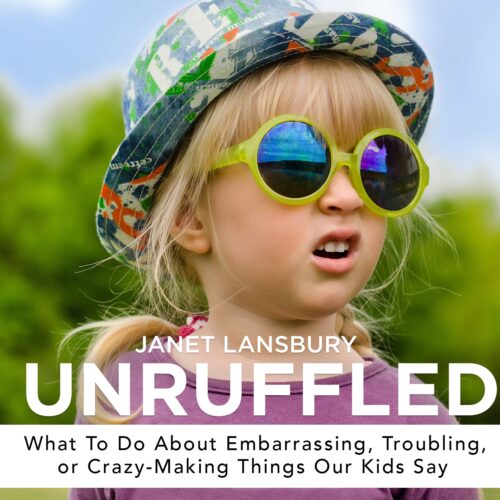
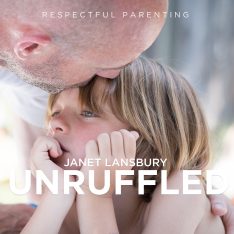

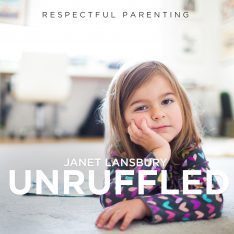

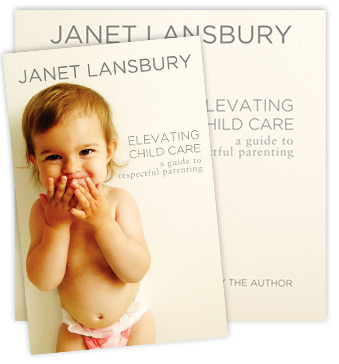

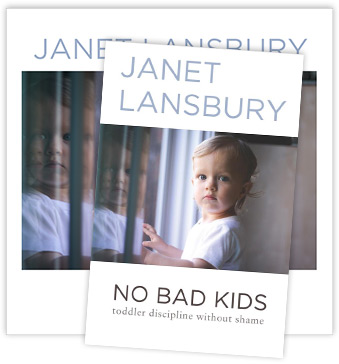


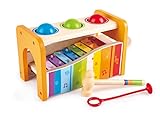
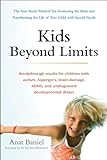


Hi Janet,
Interesting article and very useful since we’re going through something similar with our daughter (4).
We chose not to be embarrassed when she makes comments about other people and I correct her only if she says something offensive However, this rarely happens and maybe because we have a rule in our family: we talk about other persons only if there is something positive to say.
In fact, most of the time I just confirm what she observes (lady with big tummy, red nose, green hair) since she makes factual observations that I cannot dispute.
I agree that some people might be offended (for example to be called big tummy) but I don’t think we should teach kids that they are responsible for other people’ feelings (adults are responsible for managing their own reactions). Starting a conversation with a toddler, about how some people might be uncomfortable to hear comments about their appearance could backfire and could teach kids that indeed there are aspects about our bodies that are not pleasant.
My daughter also asked me only several times whether someone was a man or a woman but I must say it never crossed my mind to tell her that I don’t know. I would find it very disrespectful to lie to her, in order to be sure that we don’t hurt someone’s feelings. She knows that there are 2 genders and that the definition is related to one’s sex, not to mannerisms or other social norms. Our approach around this topic is that there is no need to fix something that is not broken. And since we do not surround her with regressive gender stereotypes, there is no need to confuse her by lying that one could simply be the opposite gender because …feelings. I believe that by trying to bend reality we will just raise a very fragile and incoherent generation, with poor critical thinking skills.